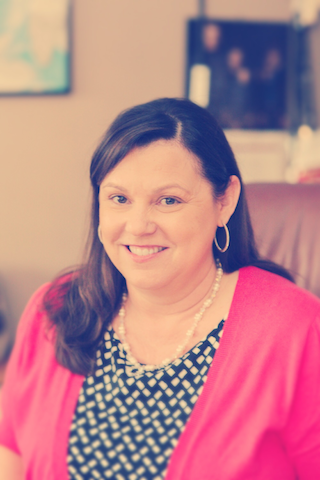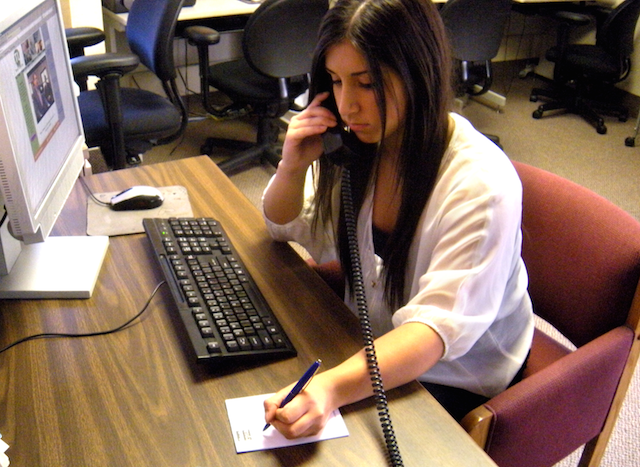
Michelle Moorhead has always wanted to make a difference. In the 80’s, Arizona had one of the highest teen suicide rates, and she wanted to reverse that trend. She volunteered for Teen Lifeline in the early 80’s and moved her way up to become the Executive Director. AFM talked with her about her favorite part about working for Teen Lifeline.
AFM: How long have you been with Teen Lifeline? Have you always wanted to work for a nonprofit?
MM: In November, it will be 26 years. In 1985, which was the year that I graduated from ASU, there was a movie on network television. The name of the movie was “Surviving,” and it was the first time teen suicides had been covered on primetime television in a very public way. It ended up on the cover of People magazine and Time magazine, and the nation was talking about the incident of teen suicide. And in Arizona at the time, we were ranked second in the nation for the rate of suicides among teenagers. The agency that I worked for, which was Southwest Behavioral Health, decided that they wanted to do programming related to that. I was fortunate enough, being in the research department, to do the initial research and program design for Teen Lifeline. In 1986, I was a volunteer [for Teen Lifeline], for about seven or eight months before I went to graduate school out of state. When I came back in 1988, I did about 11 months at an adolescent, girl facility for both a shelter and a residential treatment center. And then I was hired here in November of ’88. Most everything I’ve done, except for the pit of my background in the beginning with research and evaluation, has been working for adolescents.
AFM: What does a typical day look like for you?
MM: My job is very different now as the executive director. Yesterday [there] was a board meeting, so the day was spent preparing reports and information to have ready to present to the board, but also topics of things that we wanted to discuss and look at idea building and some creative processes. Our agency as a whole has eight full time staff members. It happens that [Sept 8-18] is teen suicide prevention awareness week. So it’s very big for us as an organization. In this two- week span, we’re visiting 20 high schools during lunchtime doing rallies and providing information and materials on suicide prevention. And Friday and Saturday of last week, we did two community-based rallies. We handed out over 10,000 cards to kids, making sure that they’re aware of our service and if they need somebody to talk to, to make sure that they know we’re here and we want to help. And we want to help them find hope when they feel hopeless. A lot of my day is making sure those moving parts are working and then [I’m also] meeting with donors and funders and participating in community level activities.
AFM: What’s your goal for Teen Lifeline?
MM: What we do every day is save lives. We are dedicated to reducing teen suicide in Arizona and empowering youth to reach their full potential. It really is about reaching kids before suicide becomes an option and trying to help them have the skills and resources they need so that it doesn’t become an option.
AFM: What’s your favorite part about working for Teen Lifeline?
MM: It’s probably the volunteers. What we do is a great mix of working with kids who are kids in crisis, the kids who call the hotline. One in four calls that we get on the hotline is from a young person thinking about suicide. So that means three of the four callers that we take, or 75% of the calls, are kids facing a lot of different issues-maybe problems at school or at home with their parents or with friends. So we have a lot of opportunities to help kids who are just starting to struggle, figure out how they deal with the issue, and activate their support in their own lives, so helping them identify who those are and helping them come up with a plan of how to deal with problems when they arise. The great thing about our organization is that the people who answer the phone are teenagers themselves. They go through extensive training before they’re able to pick up the phone and take that call and help a kid with the problem they’re having. The great thing about that is that our average length of stay for our teen volunteers is three and a half years, so we get to see tremendous growth in the young people who come to us at age 15 or 16 and are leaving us at 18 or 19. They leave here knowing they made a difference and knowing that they can continue to do it throughout their lives. So my favorite part is watching them start out at the organization, maybe being a little unsure and a little concerned, but definitely wanting to do something that mattered and watching them do that and seeing how that changes them.

AFM: What’s your favorite story you’ve experienced?
MM: One of the calls that sticks out in my mind was a night when the phone rang and one of the volunteers answered the phone, and there was silence and a click. And that scenario repeated itself about eight times in the next hour. Every time, a different kid would answer the phone trying to see if their voice was the voice that the caller would respond to. On like the ninth time, the phone rang, one of the teen counselors answered the phone and the caller said ‘I’ve been calling all night, and I’m just afraid to say anything, but now I’m afraid not to.’ They talked about how they had been struggling and they had been thinking about suicide. And they wanted to be able to tell somebody, but they were afraid. The caller talked to the peer counselor probably for about 45 minutes about their situation and what was going on at home. They had a parent who was terminally ill and there was a lot of stress related to that. The teenager who was calling in was responsible for taking care of their younger siblings and it just felt like so much. They just didn’t think that they could do it. The peer counselor talked to them about who else in their life could support them. Who is it that when things get bad, you know that they will help you? The peer counselor had a conversation with them to let them know how important it would be to let an adult know, so the caller agreed to talk to her mom about it. During the course of the call [she] went from feeling like suicide might have been something she would have done that night to maybe it wasn’t something she would do at all. Over the course of the call, she really found hope. At the end of the call, she agreed to allow us to call her the next day and she agreed to talk to her mom. Literally an hour later, she called back and she had talked to her mom. Her mom had no idea she was feeling that way, and they had made a plan to get her some additional support, to bring in other family members to take over some of the stress of her having to care of younger siblings and to get her into counseling. When she called back, she said ‘I want you to know, you saved my life.’
To learn more about Teen Lifeline, visit www.teenlifeline.org